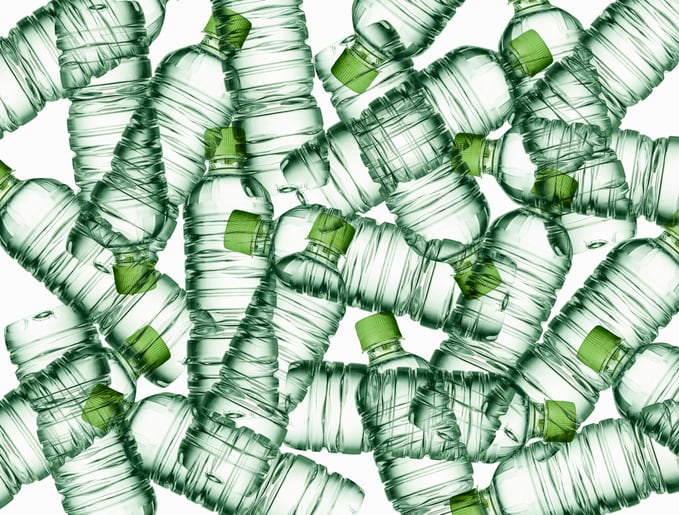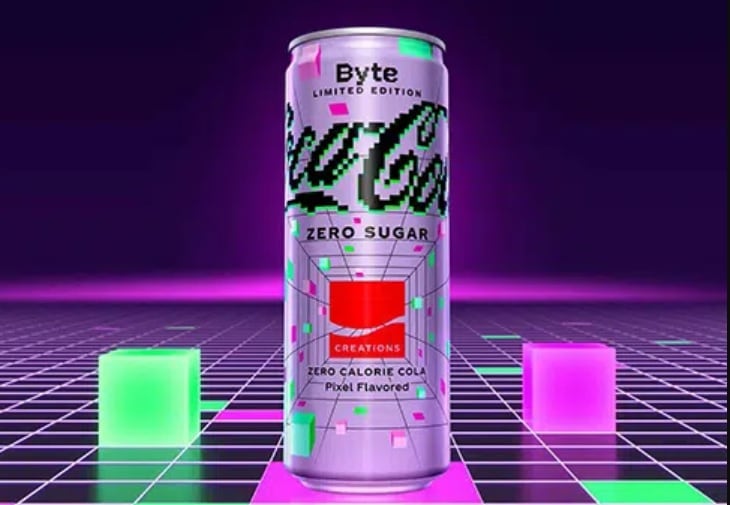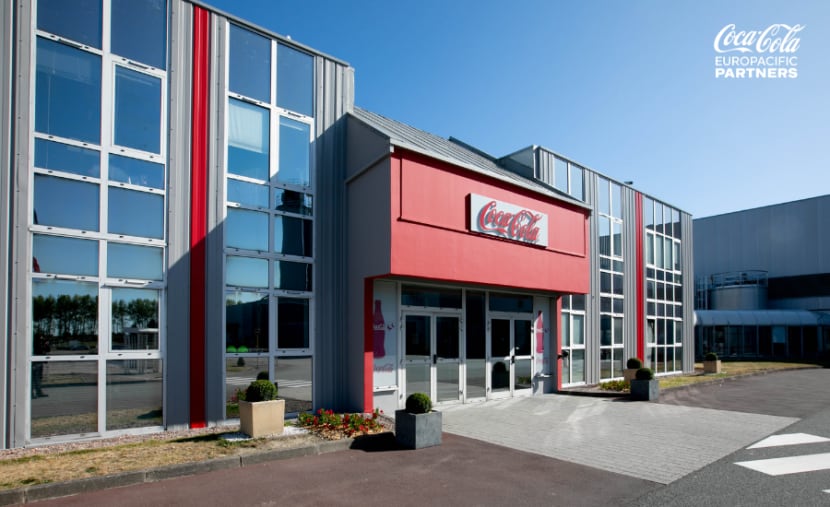In Europe, CCEP had been targeting for at least 50% of material in PET bottles to come from rPET by 2023: reaching this goal two years early in 2021 (52.9% of plastic used to make PET bottles was made from rPET). This is actually above the average of 42% recycled content across its portfolio (PET, glass and aluminum).
In Australia, 59.8% of plastic used to create bottles is rPET and in New Zealand this figure is 42.3%.
“Our increased use of rPET in Europe has saved around 34,000 tonnes of CO2e since 2019," says CCEP.
"All locally produced bottles in Sweden, the Netherlands, Iceland and Norway and single-serve bottles across Belgium, Germany, GB, Australia and New Zealand are now 100% rPET. In France some brands are already in 100% rPET bottles and we are making further transitions.”
In 2022, the company is introducing rPET in its 390ml carbonated soft drinks bottles in Indonesia, using material from a new PET recycling plant (a joint venture with Dynapack) and move to 100% rPET in single-serve bottles in Fiji.
“We are working with suppliers to drive higher levels of recycled content and put targets in place," says the company, which became Coca-Cola's largest bottler, covering 29 countries, after Coca-Cola European Partner's acquisition of Coca-Cola Amatil last year.
Growing supply of rPET
But having a sufficient supply of suitable rPET remains a key challenge for boosting rPET content, notes CCEP in its 2021 Sustainability Stakeholder Report.
“Demand for high quality food grade rPET currently exceeds supply. We are investing in long term partnerships with recyclers to stimulate their investment to increase recycling capacity, and investing directly."
In Australia, it highlights a joint venture with Pact, Cleanaway and Asahi Beverages, which will build and operate two rPET recycling plants. The first facility opened in Albury-Wodonga, New South Wales in March this year and a second is due to open in Victoria, in 2023. Each plant will have capacity to process one billion plastic bottles, together producing over 40,000 tonnes of high-quality recycled material for PET bottles and food packaging each year. The two facilities will be the largest end-to-end rPET plants in Australia.
Meanwhile, an Indonesian PET recycling plant - a joint venture with Dynapack Asia - is due to open this year.
"The state-of-the-art rPET facility, run by Amandina Bumi Nusantara, will enable us to create a closed loop plastic packaging supply chain by producing food grade PET pellets made from postconsumer plastic bottles collected locally. The recycling plant is on track to enable us to start using rPET in our 390ml carbonated soft drinks bottles in 2022 in Indonesia. Recycling capacity of an initial 15,000 tonnes a year in 2022 is expected to rise to 25,000 tonnes per year by 2023, with plans to expand to 50,000 tonnes a year by 2024. We also established Mahija Parahita Nusantara, a non-profit foundation, working to improve the lives and welfare of 3,500 waste pickers working in the informal waste sector collecting high quality feedstock for the recycling plant in Indonesia."
Furthermore, the company identifies the need to create value from plastics that are currently difficult to transform.
“We also need new depolymerisation recycling technologies so that hard-to-recycle plastics, including those found in the oceans or currently sent to incineration and landfill, can be made back into bottles. We are investing to help this technology scale, for example, CCEP Ventures investment in CuRe Technology. Depolymerisation technologies have enabled us to achieve a world first in 2019, creating a 100% recyclable sample plastic bottle made with 25% recovered and recycled marine plastics.”
Boosting collection rates
Increasing rPET availability needs increased collection rates. Coca-Cola wants to see 100% collection rates across all its markets by 2030. But across CCEP's diverse markets (ranging from Iceland to Indonesia) the mechanisms for doing this need to be adapted and suited to each country.
“Packaging collection rates are calculated in different ways across our markets," notes CCEP.
"We estimate that 78.3% of our packaging across our European territories was collected for recycling in 2021. This represents an aggregated number, based on packaging collection rates by material in each of our markets, which are then applied to our packaging volumes.
"In Europe, new legislation is changing how collection rates are measured. As a result, we expect to see our reported collection rates decrease, particularly in non-DRS markets. Collection rates are unavailable for our API [Australia, Pacific and Indonesia] markets, however, we are in the process of gathering collection data in the region."
Collecting bottles
Deposit return schemes are in place in CCEP's markets of Norway, Sweden, the Netherlands, Iceland and Germany.
"In Europe, markets with well-designed Deposit Return Schemes (DRS) achieve the highest collection rates (often more than 90%) for beverage packaging. In addition, the plastic collected through DRS has very little contamination from other materials, unlike bottles from household collection schemes.
"This means that materials can be more easily sorted and baled, and recyclers can produce high quality recycled material that is suitable for bottle-to-bottle recycling."
CCEP also pledges to continue to advocate for 'well designed' DRS in other European markets.
"In GB we have been instrumental in establishing Circularity Scotland, which will help develop and administer the DRS we expect to see established in Scotland in 2023. We are also supporting the introduction of DRS legislation in England and Wales. In Portugal, where legislation is already in place, we continue to work closely with policymakers to implement it. In our other markets, we continue to work with recycling and collection organisations including Fost Plus in Belgium, CITEO in France, WRAP and Valpak in GB, and Ecoembes in Spain."
"In New Zealand, we have been actively engaged with the Government for over two years on the development of a Container Return Scheme (CRS) and welcome the announcement of a proposal to implement a nation-wide, industry-led scheme by 2025. In Australia, we are involved in all Container Deposit Schemes (CDS) in operation. We have actively participated in the design and development of the schemes in Victoria and Tasmania, the two remaining states in Australia to implement a CDS with both scheduled to commence operation in 2023."
In markets such as Indonesia - which is expected to become an increasingly important country for CCEP as its population grows - collection must be addressed differently.
"In markets where collection infrastructure is less developed, such as Indonesia, the Pacific Islands and Papua New Guinea, we are committed to voluntary action to drive progression towards both our and the wider industry’s collection goals. Collection infrastructure here is often less developed, so we aim to directly fund and incentivise collection solutions to recover used beverage packaging and drive circular economy outcomes.
"In Indonesia, collection is mainly driven by the informal waste sector, so our approach is centred on social enterprise and community support. Through our joint venture with Dynapack, and TCCC’s membership of the voluntary Indonesia Producer Responsibility Organisation (IPRO), we are developing a ‘pull-incentive’ model to drive bottle-to-bottle recycling which incentivises the recycler and, in turn, flows through to the waste collectors to drive collection."
CCEP's full packaging report can be found here.



